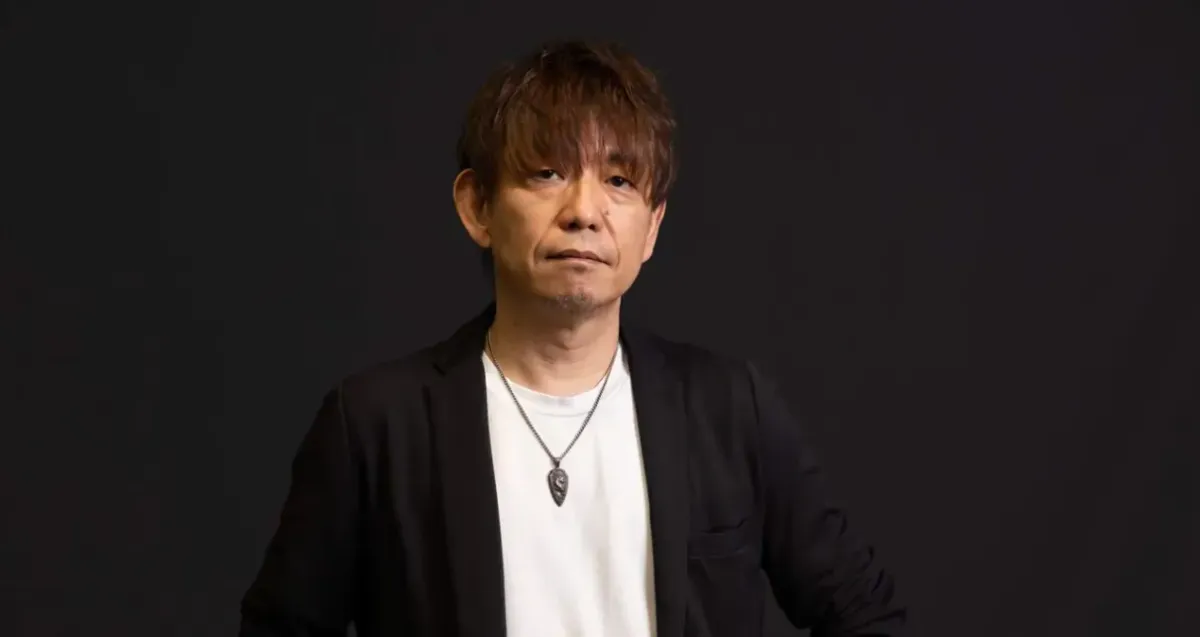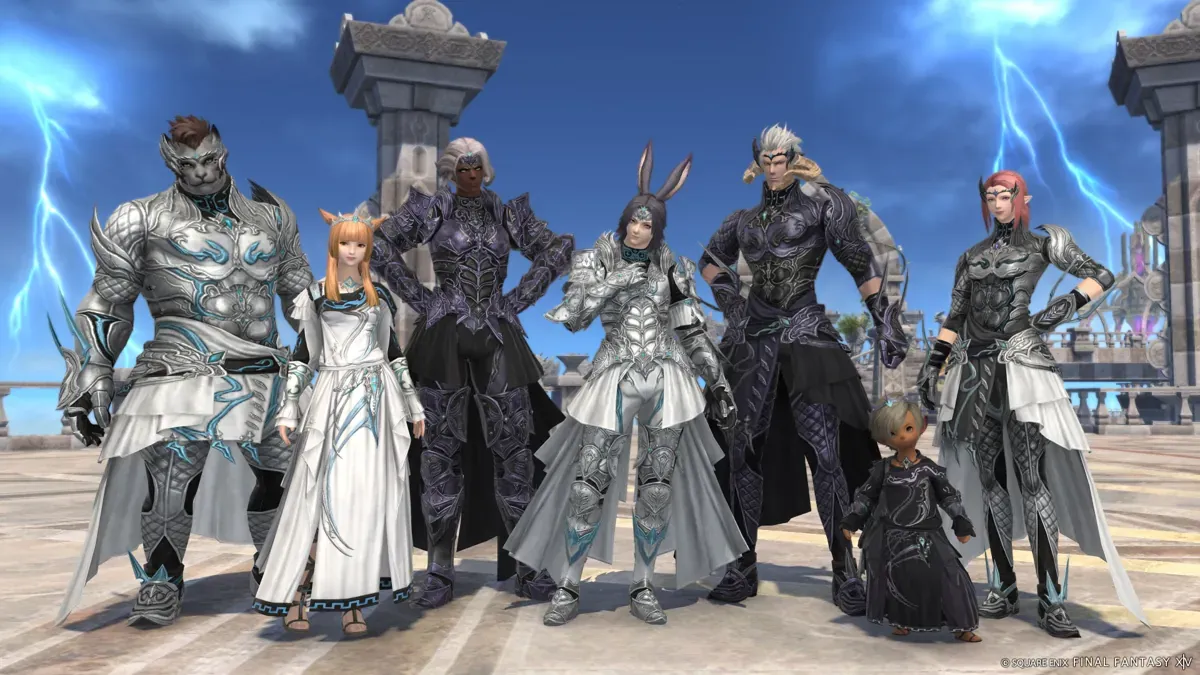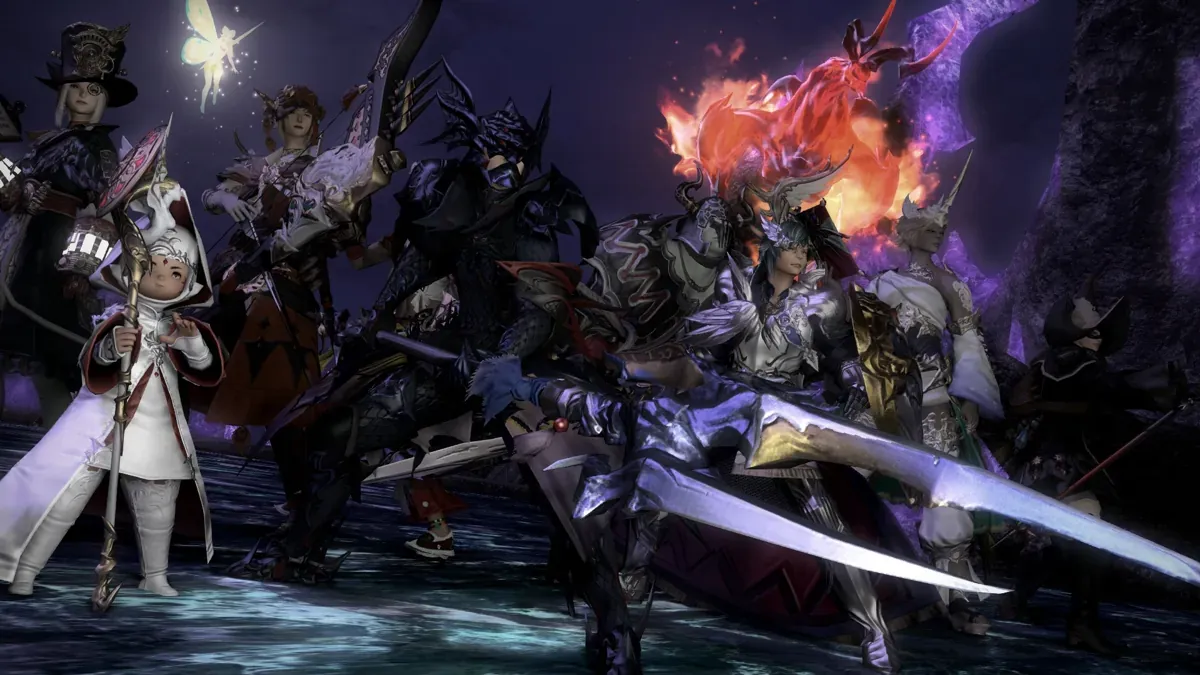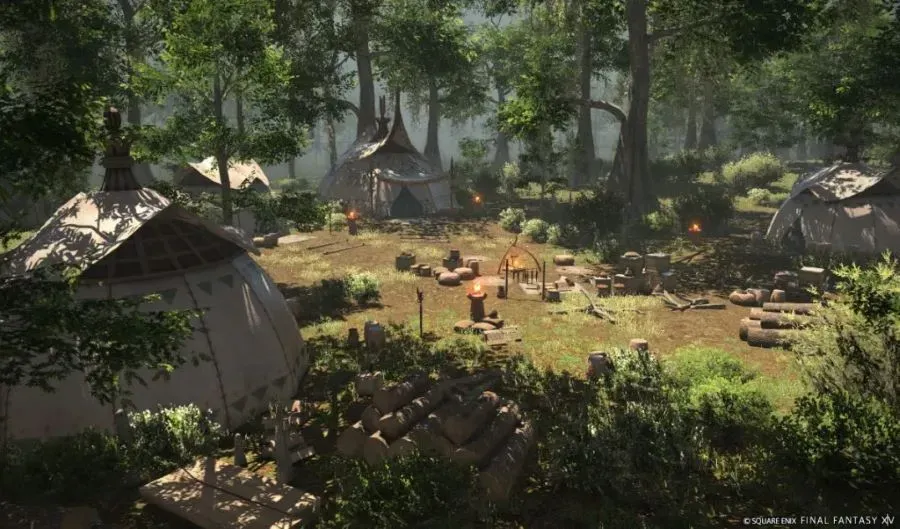One of my favorite things about Gamescom that's quickly becoming a tradition is meeting with Naoki Yoshida, Yoshi-P to fans, the designer behind Final Fantasy XIV, producer on FFXVI, and a legend in the industry for his extensive catalog of titles.
Each year, we chat about where Final Fantasy XIV, the hugely popular MMO, is right now, and where the story will go in the future. I converted to the title late, and became a much more engaged part of the story when I attended the Final Fantasy Fan Fest in 2023.
This year, I met Yoshida-san after the release of the latest patch to FFXIV, and after a year of rough feedback and steps towards a better tomorrow. A new Fan Fest is on the horizon, and the new story for The Warriors of Light is about to begin. It only felt natural that our conversation steered towards legacy, and what it means to leave something behind for future generations.
Our talk, handled via a translator, is edited and condensed for clarity.

Yoshida-san's interview from Gamescom 2024
Joonatan Itkonen: To begin, I want to start by apologizing for all these very big and esoteric questions. There are much smarter people than me who talk about mechanics and technical aspects of FFXIV, I just don't focus on all that. I come from a background as a writer so, naturally, it's the story and themes that draw me into the game.
Naoki Yoshida: Oh no, I'm super glad! I always look forward to our interviews together. When you ask me those questions, it makes me think about the things I do on instinct. It makes me logically process them; it helps me realize new things. So, I appreciate the opportunity.
JI: This latest update to the two-part story feels like the ending of a summer vacation. The mood is melancholy and the themes are growing darker. It reminded me of the film Kikujiro's Summer in a way, of broken people finding each other and forming these small family units. Would that be a fair assessment?
NY: For this story, starting with Dawntrail and through patch 7.3, the big points we wanted to convey dealt with what it is to live, and what it is to die.
We wanted to talk about how, regardless of any blood connection, people can come together and create a bond. That it didn't matter whether they are a ruler or a normal person, they can become family. So in that sense, I think that your interpretation is correct.
Moving forward in the story, we are working towards showcasing again the warrior of light having the heavy burden of fate on their shoulders. In that regard as well, I think your interpretation about the summer coming to an end is correct as well.

JI: I really appreciate these heavy themes, like how memory can be something like a soul and what does being human mean. I find them to be themes that encompass all Final Fantasy games; ultimately leading to the big question of how can we understand each other. How can we live together as people?
NY: I think not only myself, but all of the players, we often travel between the real and the digital world to escape and find relief, so when people play Final Fantasy XIV, I hope it serves as an opportunity for them to think about some of these topics.
I'm often quite torn, and I worry about how these topics are presented; but I take this approach in all my development, so to hear that you interpreted the story that way makes me extremely glad.
When it comes to player feedback, regardless of whether it is positive or negative, I think both types are really important.
JI: I want to ask about the reception to Dawntrail. Personally, I'm still a little confused about the way audiences were divided on the most recent story. It's almost a story of two parts, and many felt the pacing didn't quite work this time. Did that reaction affect the way that you approached the story in the patches we've seen, or is it still something that's on your mind for the future?
NY: When it comes to player feedback, regardless of whether it is positive or negative, I think both types are really important. What we try to do is we think why did the players provide either feedback, and then we try to predict about how can we work on improving on that.
We're constantly working on improving our processes, so it's never a case that there is no influence from the feedback we get. With regards to 7.0, the feedback that it was a story of two parts is valid. In the first part of the story we looked at Wuk Lamat and her journey to become the the ruler, and in the second part Sphene makes her appearance.
In the first half, we travelled to a new continent, met new people, came into contact with new values and cultures, and we really wanted the players to get to know those aspects. But, as a result of that, we put too much effort into creating and representing those aspects that it impacted the pacing of the first half of the story.
I consider all of the players as my allies and my comrades, that's why I'm always completely honest with them.
JI: I'm still fascinated by how closely FFXIV and its developers listen to the community. It feels wild that such direct dialog even happens.
NY: I have said this before, but twelve years ago, when we were working on A Realm Reborn, the even though the development and operations teams are the ones who work on producing the game, I look at it that we are creating FFXIV together with our players. I consider all of the players as my allies and my comrades, that's why I'm always completely honest with them. I don't distinguish between the development and operations teams and the community; I see us all as one.

JI: Going back to the story, I maintain that I really enjoyed where Dawntrail took us, because I found it extremely brave to deal with the power escalation we were seeing. We had just stopped these world ending threats, everyone has grown so powerful. I was thrilled to see a smaller story, even for a while, about legacy and reminding us that we were all once low level adventurers.
NY: I like that you felt that way about the the story! It's true, we have become stronger as the hero of the game, but as we've become stronger and accumulated that experience, I felt it was necessary for us, as the hero, to pass on that experience to the younger generation and serve as a mentor for a change.
One of the things I wanted to showcase was that The Warrior of Light is there not only to deal with the big things in the world, but that they can also make an impact on the smaller things as well. Of course in the story so far we've had to face huge threats, but before we move on to face the next big threat, I wanted the players to go through this process of first passing on that experience to the younger generation.
Naturally, I understand that some players – because they want to fulfill their role as the hero or the heroine of the game – want to move on and quickly face that next big threat. But as I mentioned before, I wanted to share this process where the heroes share their experiences, and it's for that reason why I felt that Wuk Lamat was necessary as a character in the story. Of course, we did receive all sorts of feedback in response to that, and I think the positive feedback has been especially encouraging for us.
I think receiving the thoughts of those before us and then passing them on for the next generation is something that comes very naturally to Final Fantasy.
JI: I have big and necessary question, one that relates to what you just said, but also to Final Fantasy XVI, which in in my mind has one of the greatest endings of any Final Fantasy game. What makes the theme of legacy and passed on responsibility so compelling? It's always been around, but it feels especially prominent in Final Fantasy.
NY: This might be a very Japanese way of thinking, but I quite like history, and when we look back at history – or at least what we can actually read of it – at most it's around 2500-3000 years. In my case, maybe twenty or thirty years later from now, I will die. So when it comes to passing on one 's thoughts for the next generation, I think it's just the natural approach that it's not just the thoughts of one person; they are the thoughts of all of humanity.
It's natural for us to want to pass that on for the next generation so that we can, in a way, connect humanity together. I think receiving the thoughts of those before us and then passing them on for the next generation is something that comes very naturally to Final Fantasy (as a series). That's why I think it's such a fixed theme in the stories we produce.

JI: One of my favorite bits of history trivia is that the earliest Sumerian writings ever discovered already talk about ancient times from before them. That enormity of our existence has always fascinated me.
NY: Yes! When we look at things from an individual perspective we always look at what is immediate in front of us. So if we look at contemporary society we have today, there are deep divisions in it. I wish we could make a more positive move towards the future, so that when it comes time to pass on the baton for future generations, we could all work together and do that in a positive way. That's something I always strive towards, and think about everyday.











